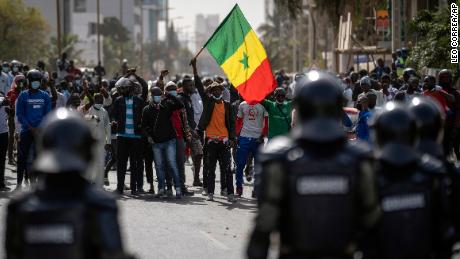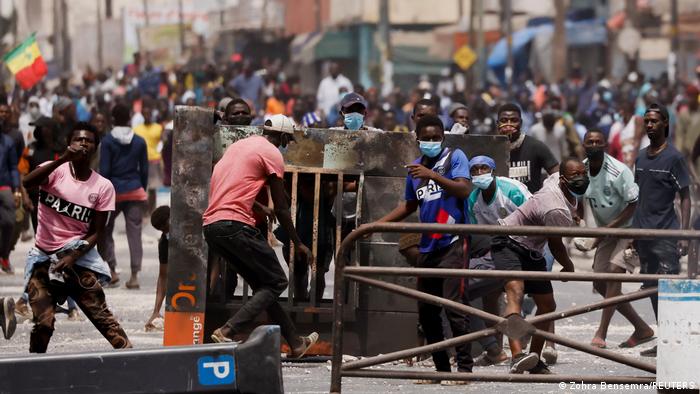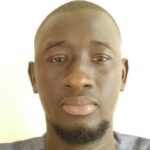Senegal, the country of Teranga (warm hospitality), was for three days in a state of unprecedented turmoil since opposition leader Ousmane Sonko was arrested on 3 March. Sonko’s situation in police custody has raised many questions pertaining to the fairness of the justice system and the ruling party’s will to silence all opposition leaders.

These questions are relevant because of two political events. In March 2015, Karim M. Wade, son of former President Abdoulaye Wade, was jailed for six years for corruption. In March 2017, Dakar Mayor Khalifa A. Sall was sentenced for five years on charges of misappropriation of funds.
Both were apt to run for the 2019 presidential elections and their participations could have changed the political order. This begs the burning question relating to the justice system fairness and independence from the influence of politicians in power.
Do these circumstances explain the riots that shook the peaceful foundations of Senegal? Sonko has millions of supporters throughout the country and abroad. However, there is more to his suspicious arrest than met the eye. People are claiming on social media to make Senegal a democratic country again.
President Macky Sall is not skillful in beating his swords into plowshares. His speeches are very often tagged forceful and aggressive towards Senegalese people. A good leader should be able to break the ice with smiles and good mood sometimes but President Sall’s unfriendly facial expression and awkward remarks add fuel to the flames.
People suspect that President Sall is honouring his 2015 promise when he publicly and literally asserted that he will reduce the opposition to its simplest expression.
In 2012, he said that spiritual guides are ordinary citizens. In a Muslim country where spirituality occupies a multi-dimensional place, it is not safe to downplay people’s religious convictions.
President Wade had wisely advised his country people to wear red armbands as signs of protest instead of burning tyres for roadblocks, ransacking or sabotaging public property. Unfortunately, President Sall, after his 31 December 2020 address to the nation, declared that he cannot see the red colour and urged protestors to change their strategy.
More recently in February 2021, while people were raising justified doubts about the Covid-19 vaccines, President Sall missed the timely occasion to convince the Senegalese to get vaccinated. He threateningly said that if Senegalese people refuse the vaccines, he will be obliged to give them to other African countries.
President Sall’s most recurrent forceful remark is “THE RULE OF LAW MUST PREVAIL”. To defy him, during the recent protests ended in riots, people were singing together “POWER TO THE PEOPLE”.
Next to the imprisonment of promising political opponents and activists like Guy Marius Sagna, Karim Xrum Xax, Assane Diouf, Cledor Sene, Thiat of Y En A Marre Movement, to list a very few, are thrown into prison for daring to protest peacefully or freely expressing themselves. Where does our democracy go from here?
There are many other reasons why it is safe to say that Senegal is losing ground in terms of democracy. Prefects who are supposed to make sure people’s security is guaranteed during demonstrations ban them from protesting, which is unconstitutional.

Since Sonko’s arrest triggered protest movements in Dakar and around also, Internet access is being limited and social media controlled. On 5 March, the National Centre for Audiovisual Regulation (CNRA) stopped two of the most popular TV channels of the country from emitting on charges of encouraging revolt.
Not only that, this kindles a sense of injustice because during these three days of violent riots, some non-identified people attacked TFM and Le Soleil, media outlets that are believed to be too biased, wreaking havoc and setting their office buildings on fire.
During the demonstrations, protesters were sometimes chanting “FREE SONKO” in French and singing in Wolof next to police officers:
“OUR SOCIETY IS IN TURMOIL, OUR SOCIETY IS IN TURMOIL,
LET’S HAVE DIGNITY, LET’S HAVE DIGNITY,
LET’S RESPECT OUR SENEGAL”.
During the demonstrations, protesters were also warning President Sall not to touch Sonko singing in Wolof: “IF YOU TOUCH HIM, IF YOU TOUCH HIM, WE WILL BEAT YOU”.
Even though protesters threw stones to the police and gendarmerie and that the latter used brutal force, they would end up shaking hands as if to say they live in the same country and have no reason to hate one another.
In fact, there would be no violence if all demonstrations were well supervised but too much bans finish in revolts and this is what people were expressing in the streets.
The riots also coincided with a peaceful protest organized by the Y En A Marre Movement, the opposition parties, and all civil societies on Friday 5. During these riots, Auchan stores were attacked, looted and set on fire.
There is not yet a total inventory of the material damage and the number of people who have lost their lives so far remains unknown. Words are wasted on a starving people. The attacks on Auchan all over the country is evidence that the curfew measures that restricted free movement increasing joblessness have aggravated the pangs of hunger people are dying from in a poor country.
The government must consider many parameters before following the examples of developed countries even in times of sanitary crises. Senegal might be in a watershed and anything can happen as long as activists are being kept in prisons, political leaders humiliated and if the government officials’ speeches are being more and more bitter.
And to resolve these social and economic catastrophes, President Sall should make a moderate and conciliatory speech, call for sincere dialogues with all political leaders, develop good listening skills and protect free expression as great leaders do.
He would be put on the highest pedestal by taking these decisions in an address to the nation:
– To free Ousmane Sonko dropping all charges;
– To free all activists and protesters;
– To protect the freedom of speech;
– And to apologise for all the unhappy events.
By Mouhamed DIOP

The author is a PhD scholar in American studies at Université Cheikh Anta Diop of Dakar. E:mouhamed.rassoul@yahoo.fr










Recent Comments